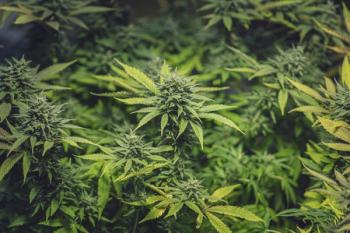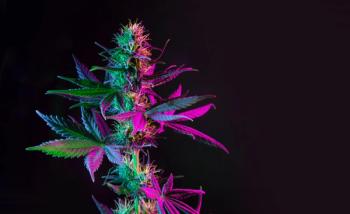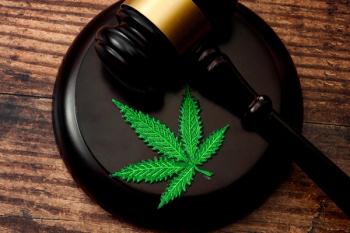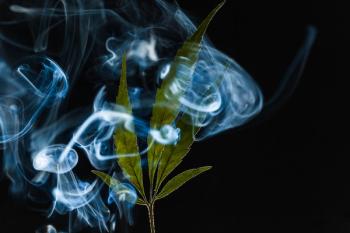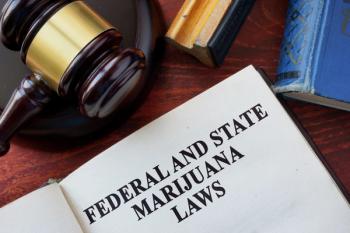
- Drug Topics September 2022
- Volume 166
- Issue 9
Cannabis Treatment for Sleep Disorders Warrants Further Investigation
Encouraging outcomes in recent studies have researchers calling for more analysis of the effect of cannabinoids on sleep disorders.
A review published in Nature and Science of Sleep1 found promising results of cannabinoid medicine on sleep disorders—an indication that further research exploring this relationship would be helpful in this field.
The effect of cannabinoids on sleep quality is mixed, with the largest and most recent study identifying no change in any measure of sleep quantity or architecture in 27 young volunteers who took 300 mg cannabidiol (CBD) compared with placebo. No studies that included tetrahydrocannabinol (THC) reported an improvement in time taken to fall asleep (sleep onset latency; SOL), although one reported a reduction in wake time after sleep onset (WASO).
The effect of THC on insomnia has been evaluated in several studies. The earliest published study was a double-blind, randomized controlled study where 9 people were given 10 mg, 20 mg, or 30 mg THC or placebo and self-reported symptoms. SOL decreased when taking THC vs placebo, although there were no differences in number of awakenings or time spent awake. Adverse events occurred more often as dosage of THC increased, and were more frequent in the evening.
There were 2 other randomized controlled trials that studied the effect of synthetic THC (nabilone) on sleep and/or insomnia. Symptoms were significantly improved in 29 patients when taking 0.5 mg to 1 mg of nabilone compared with 10 mg to 20 mg of amitriptyline for 2 weeks. Both nabilone and amitriptyline were beneficial compared with baseline, but sleep quality was not improved. Adverse events were also more frequent in nabilone compared with amitriptyline (91 vs 53).
There is limited evidence that CBD is beneficial for insomnia. A double-blind, randomized, placebo-controlled trial found that participants reported longer sleep duration when taking 160 mg of CBD, but there were no differences in SOL or sleep maintenance.
Mixed cannabinoid formulas were also found to be effective, with a double-blind, randomized, placebo-controlled trial finding that symptoms were significantly reduced while taking ZTL-101, a formulation of THC:cannabinol: CBD (20:2:1 mg/mL). Subjective measures of SOL, WASO, total sleep time, and sleep quality were also improved; no improvement was noted in polysomnography-derived measures in the 1-night test.
The American Academy of Sleep Medicine advises against routine use of medicinal cannabis for obstructive sleep apnea (OSA) due to limited safety and efficacy data. However, some trials have had promising results. In 2 clinical studies of dronabinol, 1 study demonstrated a mean decrease of 14±17.5 events/hr–1 in the apnea hypopnea index (AHI) following a daily dose of 2.5 mg, 5.0 mg, or 10 mg dronabinol 30 minutes before bedtime.
A second trial with similar methodology found a mean AHI decrease of 10.7±4.4 and 12.9±4.3 events/hr–1 in participants taking 2.5 mg and 10 mg of dronabinol, respectively. No differences in oxygenation were noted, but daytime sleepiness decreased in those taking a higher dose.
Nabilone has been demonstrated as having a beneficial effect on posttraumatic stress disorder–related nightmare disorders. In a case series, 47 patients in a psychiatric clinic took a mean dose of 0.5 mg nightly; 72% of patients experienced reduction (mean 5.2±2.2 vs 0.9±1.8 nights/week) or elimination of nightmare frequency and/or severity. Some patients (9%) were able to end treatment without a return of symptoms.
Limitations of this review were noted. The review only focused on studies where sleep or sleep disorders were the focus, but sleep could also be improved with cannabinoid use for pain. The researchers noted that this group of patients should be assessed in the future.
The researchers concluded that, although there is insufficient evidence for clinical use of cannabinoids as a safe and effective treatment for sleep, encouraging outcomes from recent studies indicate that future studies should be done to determine the potential role of cannabinoids for the treatment of sleep disorders.
Reference
1. Maddison KJ, Kosky C, Walsh JH. Is there a place for medicinal cannabis in treating patients with sleep disorders? what we know so far. Nat Sci Sleep. 2022;14:957-968. doi:10.2147/nss.s340949
Articles in this issue
over 3 years ago
Tips for Managing Diabetes Comorbiditiesover 3 years ago
The Evolution of the CBD Regulatory Landscapeover 3 years ago
Women and CBD: Increased Interest, but Caution Is Warrantedover 3 years ago
Mitigating Costs of Cancer Treatment: The Role of Pharmacistsover 3 years ago
Counseling Pearls for CBDover 3 years ago
Drug Testing Challenges Emerge With CBD Product Useover 3 years ago
Waste Problem Shows COVID-19 Vaccines Aren’t Just a Dime a Dozenover 3 years ago
CBD Products: What Pharmacists Need to KnowNewsletter
Pharmacy practice is always changing. Stay ahead of the curve with the Drug Topics newsletter and get the latest drug information, industry trends, and patient care tips.

